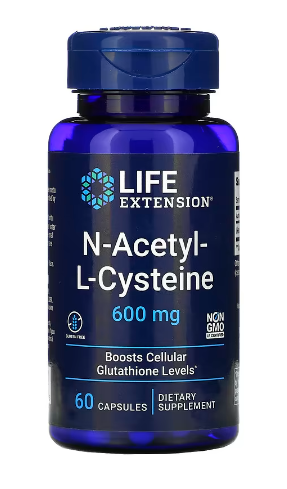SIBO (Small Intestinal Bacterial Overgrowth) is a condition where there is an overgrowth of bacteria in the small intestine, which can lead to various symptoms such as bloating, abdominal pain, diarrhea, and malabsorption of nutrients. Functional medicine approach to SIBO treatment involves addressing the underlying causes and imbalances that contribute to the development of SIBO, such as poor diet, chronic stress, impaired gut motility and imbalances in the gut flora.
SIBO can disrupt both the structure and function of the small intestine and have a significant impact on digestion and nutrient absorption, as it causes damage to the mucosa (the cells lining the small bowel). Furthermore, this damage may lead to leaky gut (when large protein molecules escape into the bloodstream due to a permeable intestinal barrier), which has been linked to immune reactions that cause food allergies or sensitivities, inflammation, and autoimmune diseases.
Do you have SIBO?
These are the most common symptoms:
- Acid Reflux, heartburn, GERD
- Bloating and abdominal distention
- Abdominal pain/discomfort
- Diarrhea
- Constipation (generally associated with methanogens)
- Gas and belching
- Fatigue
- Could cause weight loss caused by malnutrition
- Anxiety and depression
- Diagnosis of Irritable Bowel Syndrome (IBS) or Inflammatory Bowel Disease (IBD)
- Food intolerances such as gluten, casein, lactose, fructose, and particularly histamine intolerance
- Chronic illnesses such as fibromyalgia, chronic fatigue syndrome, diabetes, neuromuscular disorders, and autoimmune diseases
- Vitamin and mineral deficiencies, including vitamins A, B12, D, and E
- Fat malabsorption (signified by sticky, pale, bulky, and malodorous stools)
- Leaky gut

What causes SIBO?
The cause of SIBO is usually complex and several risk factors have been identified.
Approximately 80% of your immune system is regulated by your gut, which can also influence your mood and genetic expression. As a result, we are just starting to comprehend the links between SIBO and other medical conditions that may appear unrelated at first.
Risk Factors and potential causes
for SIBO:
- Irritable bowel syndrome (IBS)
- Studies suggest that up to 80% of people with irritable bowel syndrome (IBS) have SIBO.
- Low stomach acid
- Celiac disease (long-standing)
- Crohn’s disease
- Prior bowel surgery
- Diabetes (type I and type II)
- Multiple courses of antibiotics, pharmaceuticals or the use of opiate pain killers or narcotics.
- Organ system dysfunction, such as liver cirrhosis, chronic pancreatitis, or renal failure
- Scleroderma
- Abdominal surgery (fx. gastrectomy)
- Rosacea
- Dysmotility
- Diverticulosis
SIBO has also been related to:
Some conditions may cause SIBO, some may co-exist and some are caused by SIBO:
- Unresponsive coeliac disease
- Chronic prostatitis
- Acne rosacea
- Systemic sclerosis
- Fibromyalgia
- Rheumatoid arthritis
- Liver cirrhosis
- Non Alcoholic Fatty Liver Disease
- Parkinson’s disease
- Restless legs syndrome
- Type 2 diabetes
- Candida overgrowth
The following factors can contribute to SIBO development:
1. Adhesion in the gastrointestinal tract.
Adhesion is a condition in which tissues or organs in the gastrointestinal tract become stuck together, usually as a result of inflammation or scar tissue formation.
Adhesion could be caused by: Abdominal surgery, infection, or inflammation. Endometriosis, appendicitis (any infection in abdomen), IBD, trauma or injury to the abdomen.
Certain manual therapy techniques, such as visceral manipulation and myofascial release, have been shown to be effective in reducing adhesions in the gastrointestinal tract.
2. Food poisoning.
Food poisoning can potentially lead to SIBO. Some types of food poisoning, such as Salmonella and Campylobacter, can damage the lining of the small intestine, which may lead to an overgrowth of bacteria.
It’s an autoimmune process that decreases Migrating Motor Complex (MMC), slowing down small intestine motility. This keeps bacteria in the small intestine, they proliferate & accumulate (like a stagnant swamp).
3. Low stomach acid.
Stomach acid plays a crucial role in killing off harmful bacteria before they enter the small intestine. If stomach acid production is low, bacteria can survive and enter the small intestine, potentially leading to SIBO.
A review published in the Journal of Digestive Diseases suggested that hypochlorhydria may contribute to the development of SIBO by altering the pH of the gastrointestinal tract, reducing the effectiveness of the intestinal barrier, and impairing the natural defense mechanisms against bacterial overgrowth. The authors concluded that restoring normal gastric acid secretion may be an effective approach for treating SIBO.
4. Use of certain medications.
Certain medications, such as proton pump inhibitors (PPIs) and antibiotics, can disrupt the balance of bacteria in the gut, potentially leading to SIBO.
PPI use can contribute to SIBO:
A study published in the Journal of Neurogastroenterology and Motility found that the use of Proton pump inhibitors (PPI) was associated with a higher prevalence of SIBO in patients with chronic gastritis. The researchers suggested that PPI use may lead to changes in the gut microbiota and a disruption of the small bowel barrier, both of which can contribute to SIBO.
Antibiotics can contribute to SIBO:
A study published in the World Journal of Gastroenterology in 2014 found that the use of antibiotics was associated with a higher prevalence of SIBO in patients with irritable bowel syndrome (IBS). The study found that the prevalence of SIBO in IBS patients who had used antibiotics was 48%, compared to 18% in those who had not used antibiotics.
5. Impaired gut motility and deficient MMC (Migrating Motor Complex).
The Migrating Motor Complex are electrical waves which are responsible for moving food through the digestive system via peristalsis. These waves are also what causes the contents of your stomach to empty, pushing and removing debris throughout the GI tract.
Causes of deficient migrating motor complex:
Food poisoning, opiates, antibiotics, diabetes, hypothyroid, Ehlers-Danlos, Parasites, Lyme, Parkinson’s, Scleroderma, Traumatic Brain Injury.
The muscles in the digestive tract help move food through the system. If gut motility is impaired, food can sit in the small intestine for too long, providing a breeding ground for bacteria.
Gut motility refers to the contraction and relaxation of the muscles in the gastrointestinal tract that help move food and waste through the digestive system.
When food stays in the small intestine for longer periods of time, the bacteria in the small intestine have more time to break it down and ferment it, leading to the production of gas and other byproducts that can cause bloating, abdominal discomfort, and other digestive symptoms.
There are several factors that can contribute to impaired gut motility, including:
- Diabetes: Diabetes can damage the nerves that control gut motility, leading to a condition known as diabetic gastroparesis.
- Neurological disorders: Neurological disorders such as Parkinson’s disease and multiple sclerosis can also affect gut motility.
- Structural abnormalities: Abnormalities such as intestinal strictures, adhesions, and tumors can obstruct the normal flow of food and waste through the digestive system.
- Medications: Certain medications, such as opioids, anticholinergics, and drugs can slow down gut motility.
- Chronic stress: Chronic stress can affect gut motility by altering the balance of hormones and neurotransmitters that regulate gut function.
How to treat SIBO?
Although conventional medicine often uses antibiotics such as rifaximin to treat SIBO, this approach has its drawbacks. Antibiotics are not selective and can destroy both the bad bacteria causing SIBO and they also end up killing the good bacteria necessary to keep SIBO from returning. Studies have found that many patients must take antibiotics for extended periods of time since this contributes to SIBO recurrence and increased gut symptoms.
Here’s other ways to treat SIBO according to Functional Medicine:

1. Begin with Taking a SIBO Breath Test.
SIBO breath tests are commonly used to diagnose SIBO to be sure that your symptoms are caused by SIBO.
Breath tests that measure levels of hydrogen and methane gas are the most commonly used tests for diagnosing SIBO. But the tests have a high rate of false negatives which means that the test results may come back as negative even though the person actually has the disease.
The choice of test will depend on the patient’s symptoms and medical history.
2. Identify and Address Underlying Causes.
It is recommended to perform comprehensive testing to identify the underlying causes of SIBO. This may include testing for food sensitivities, gut permeability, digestive enzyme levels, and inflammation markers. Once the underlying causes are identified, a personalized treatment plan can be created to address them.
3. Follow specific diet to reduce symptoms.
Specific SIBO Diets can be used to reduce symptoms, such as:
- Low FODMAP Diet
- The Elemental Diet
- The Specific Carbohydrate Diet
- The GAPS Diet
A low-FODMAP diet is often recommended to reduce symptoms of SIBO.
This diet restricts fermentable carbohydrates that can contribute to bacterial overgrowth. Studies have shown that a low-FODMAP diet can improve SIBO symptoms in some people.
The low-FODMAP diet is a dietary approach that involves avoiding or limiting certain types of carbohydrates called FODMAPs. FODMAPs are short-chain carbohydrates that are poorly absorbed in the small intestine and can be fermented by bacteria in the large intestine, leading to symptoms such as bloating, gas, abdominal pain, and diarrhea in people with irritable bowel syndrome (IBS) or other digestive disorders. These include sugars such as lactose, fructose, and glucose, as well as sugar alcohols such as sorbitol and mannitol, and certain types of fiber such as inulin and fructans.
The low-FODMAP diet involves eliminating high-FODMAP foods from the diet for a period of time, usually 2-6 weeks, and then gradually reintroducing them to identify which ones trigger symptoms. Once trigger foods have been identified, they can be limited or avoided in order to manage symptoms.
Foods to Eat on a low-FODMAP diet:
- Meat, poultry, fish, and seafood (unprocessed)
- Eggs
- Low-lactose dairy products such as hard cheese, lactose-free milk, and yogurt
- Non-starchy vegetables such as carrots, cucumbers, lettuce, tomatoes, spinach, and zucchini
- Fruits low in FODMAPs such as bananas, blueberries, grapes, kiwi, oranges, and strawberries
- Grains and cereals such as gluten-free bread, oats, quinoa, rice, and corn
- Nuts and seeds such as almonds, peanuts, pumpkin seeds, and chia seeds
- Fats and oils such as olive oil, coconut oil, and butter
Foods to Avoid on a low-FODMAP diet:
- Wheat-based products such as bread, pasta, and cereals
- Dairy products with high lactose content such as milk, soft cheese, and ice cream
- Fruits high in FODMAPs such as apples, cherries, figs, mangoes, peaches, and watermelon
- Vegetables high in FODMAPs such as asparagus, cauliflower, garlic, onions, and mushrooms
- Legumes such as chickpeas, lentils, and beans
- Sweeteners such as honey, fructose, and high fructose corn syrup
- Beverages such as beer, wine, and soft drinks containing high-fructose corn syrup
4. Use Antimicrobials to get rid of the overgrowth.
Antibiotics are often used to treat SIBO, but they can have side effects and lead to antibiotic resistance. Antibiotics can also contribute to Candida bacterial overgrowth which is common among people with SIBO.
Antibiotics are commonly prescribed to treat SIBO, but research indicates that around half of all patients experience a recurrence of symptoms within one year, even after antibiotic treatment.
Research studies have shown that herbal antimicrobials, such as Allicin, oregano oil, berberine, garlic and neem, are as effective as antibiotics in treating SIBO, and in some cases, they may even be more effective.
A study comparing rifaximin (the most commonly used antibiotic for SIBO) and botanical antimicrobials showed that the botanical protocol had slightly better outcomes, but still only resulted in successful treatment for close to half of all patients after one course.
Antibiotics are commonly prescribed to treat SIBO, but research indicates that around half of all patients experience a recurrence of symptoms within one year, even after antibiotic treatment.
The findings indicate that treating the overgrowth alone is not enough for most people; in order to achieve successful treatment, it is necessary to also address the underlying cause.
5. Address Gut Motility and deficient MMC (Migrating Motor Complex).
Impaired gut motility can contribute to the development of SIBO. The muscles in the digestive tract help move food through the system. If gut motility is impaired, food can sit in the small intestine for too long, providing a breeding ground for bacteria.
If the migrating motor complex (MMC) is not contracting as strongly or as frequently as it should, or if it does not last for the appropriate length of time, this can lead to impaired motility. People who suffer from constipation or methane-dominant SIBO may find that taking a prokinetic agent can help to reset their MMC and improve their symptoms.
- Prokinetic agents stimulate the migrating motor complex.
MMC are cleansing waves in our gastrointestinal tract that occur between meals or during fasting states. This complex acts as intestinal sweepers, moving bacteria, debris and other contents along the GI tract.
Prokinetic agents are substances, either drugs or herbal compounds, that cause strong contractions and emptying of the stomach and intestinal contents. Activation of the 5-HT4 receptors for serotonin hormone is how these agents work, resulting in faster GI tract emptying.
- Abdominal massage can also help improve gut motility.
It’s a technique that involves the manipulation of the abdomen to promote relaxation, relieve tension, and improve digestion. It has been suggested that abdominal massage may help improve gut motility by stimulating the muscles and nerves in the digestive tract.
Research has shown that abdominal massage can increase the frequency of bowel movements and reduce constipation in people with chronic constipation. It may also be helpful in managing symptoms of irritable bowel syndrome (IBS) such as bloating and abdominal pain.
One study published in the Journal of Pediatric Gastroenterology and Nutrition found that abdominal massage improved the frequency of bowel movements in children with functional constipation. The study involved 60 children between the ages of 4 and 18 who received either abdominal massage or standard care. After four weeks, the children who received abdominal massage had a higher frequency of bowel movements than those who received standard care.
- Intermittent fasting can help the MMC to kick in.
Intermittent fasting can be a powerful tool in managing SIBO. Taking breaks from eating for short periods of time to starve out the bacterial overgrowth. When we are constantly eating we don’t give our migrating motor complex (MMC) a chance to kick in. So when we fast we’re giving your MMC a chance to work more effectively between meals.
It’s recommended to have a gap of 4-5 hours between meals and to avoid eating anything 2 hours before going to bed. Additionally, it is beneficial to fast for 12 hours overnight to improve the MMC.
6. Prokinetics can help improve gut motility and prevent bacterial overgrowth.
A recent study revealed that individuals suffering from SIBO have a prolonged small bowel transit time. This implies that those who do not recover after taking antimicrobials may benefit from taking prokinetic agents which enhance the muscular contractions of the small intestine.
Prokinetics help strengthen the lower esophageal sphincter (LES) and cause the contents of the stomach to empty faster. This can help control acid reflux.
Prokinetics can include natural substances like ginger or prescription medications like low-dose erythromycin, naltrexone, octreotide, prucalopride and lubiprostone.
Natural prokinetic agents have also been identified to be successful. For example, probiotics, rikkunshito, liquorice, ginseng, poria mushroom and Iberogast. Curcumin, melatonin, peppermint oil, ginger, and some ayurvedic medicines may all aid gastric motility.
7. Support Gut Health.
Supporting gut health with probiotics, prebiotics, and other nutrients can help to restore balance to the gut microbiome and reduce the risk of SIBO recurrence.
Probiotics can be tricky for those with SIBO, as an overgrowth of D-lactate-producing probiotic species can lead to a buildup of D-lactate in the gut, resulting in symptoms. Therefore, it is best to avoid taking probiotics that contain D-lactate-forming species like Lactobacillus acidophilus (which is one of the most common probiotics) and opt for a D-lactate free product such as Custom Probiotics.
Soil-based organisms can be helpful when SIBO is present, they are a different approach than the lactic acid-forming types of probiotics, and they’re often better tolerated in people with SIBO. Additionally, the soil-based probiotics tend to work better for constipation than other varieties, because oftentimes probiotics can make constipation worse; therefore soil-based organisms like Prescript-Assist is an excellent choice for people with SIBO.
Saccharomyces boulardii is also a beneficial strain of yeast that has been known to be helpful with SIBO.
8. Biofilms can be a deal breaker if not used during SIBO treatment.
It is important to include biofilm disruption in any SIBO protocol due to the fact that bacteria can form a protective extracellular matrix known as biofilm. This matrix allows them to share nutrients and even DNA, making it harder for our immune system to clear it from the body compared to other bacterial states.
A biofilm is a collection of microbes (bacteria, fungi, algae, archaea) and the purpose of the microbes forming the biofilm is to protect themselves from anything that might try to interfere with their goals.
Here are a few I use Biofilm disruptor to your treatment protocol:
- NAC (N-Acetyl-L-Cysteine)
- Interfase Plus
- Nattokinase
- Lumbrokinase
- Linoleic acid
- Curcumin

If you are taking a biofilm disruptor, it is important to avoid Iron, Calcium, Zinc and Magnesium supplements at the same time as they provide the bacteria with the raw material needed to reinforce their extracellular matrix and create a stronger wall.
9. Other supplements for digestive function.
Supporting digestive function through digestive enzymes, hydrochloric acid, or bile support can help break down food more effectively and reduce bacterial overgrowth.
- Enzymes are proteins that help break down our food.
If you experience symptoms such as bloating, gas, and abdominal pain due to SIBO, digestive enzymes may be a beneficial solution. Not only do they aid in reducing these symptoms, but they also help enable digestion of difficult-to-digest foods like FODMAPs.
Some enzymes can help break down specific types of carbohydrates and sugars that are difficult to digest, such as lactose, fructose, and other FODMAPs (fermentable oligosaccharides, disaccharides, monosaccharides, and polyols). These undigested carbohydrates can contribute to SIBO symptoms by feeding the overgrowth of bacteria in the small intestine. By supplementing with enzymes that can break down these carbohydrates, some people with SIBO may experience relief from their symptoms.
Additionally, enzymes can also help with the digestion and absorption of nutrients from food. People with SIBO may experience malabsorption of nutrients due to damage to the small intestine or bacterial overgrowth, and enzymes can help improve nutrient absorption and reduce the risk of nutrient deficiencies. - HCl supplements can help improve digestion and reduce symptoms of SIBO by increasing the acidity of the stomach, which can in turn inhibit the growth of bacteria in the small intestine. Additionally, people with certain medical conditions, such as gastritis or ulcers, may be advised against taking HCl supplements.
- Bile salts are naturally produced by the liver and released into the small intestine to aid in the digestion and absorption of fats.
In people with small intestinal bacterial overgrowth (SIBO), the excess bacteria in the small intestine can interfere with the normal functioning of the digestive system, including the production and release of bile salts. Which can lead to improper fat digestion, sticky stool and digestive problems.
However, it is important to note that enzymes, HCL and bile salts alone may not be enough to treat SIBO.
10. Stress management.
Stress can disrupt the gut microbiome and worsen symptoms of SIBO. Practicing stress-reducing techniques like meditation, yoga, tai chi or deep breathing can help to improve gut health.
11. Address any underlying nutrient deficiencies.
Nutrient deficiencies can contribute to gut dysfunction and SIBO. Addressing any deficiencies through targeted supplementation can help restore gut health.
Some nutrient deficiencies may contribute to the development of SIBO indirectly by affecting the normal function of the digestive system or the immune system.
Some studies suggest that deficiencies in certain nutrients may increase the risk of SIBO. These include:
- Vitamin D: Research has shown that vitamin D deficiency may be associated with an increased risk of SIBO. It may impair the immune system’s ability to regulate the growth of bacteria in the gut.
- Iron: Iron deficiency has been linked to an increased risk of SIBO, possibly due to changes in gut motility or immune function.
- Zinc: Zinc deficiency has been associated with impaired gut barrier function, which may contribute to the development of SIBO.
- Magnesium: Magnesium deficiency has been linked to gastrointestinal disorders and altered gut motility, which may increase the risk of SIBO.
- Vitamin B: Deficiencies in certain B vitamins, such as vitamin B12, may lead to changes in the structure and function of the gut lining, making it more susceptible to bacterial overgrowth.
In addition, certain medical conditions that can lead to nutrient deficiencies, such as celiac disease or inflammatory bowel disease, may also increase the risk of SIBO.
SIBO is largely under-diagnosed and many individuals fail to get the right treatment for their symptoms. Because physicians are often unaware of its prevalence, resulting in it being underestimated.
“Stress can disrupt the gut microbiome and worsen symptoms of SIBO. Practicing stress-reducing techniques like meditation, yoga, tai chi or deep breathing can help to improve gut health.”

